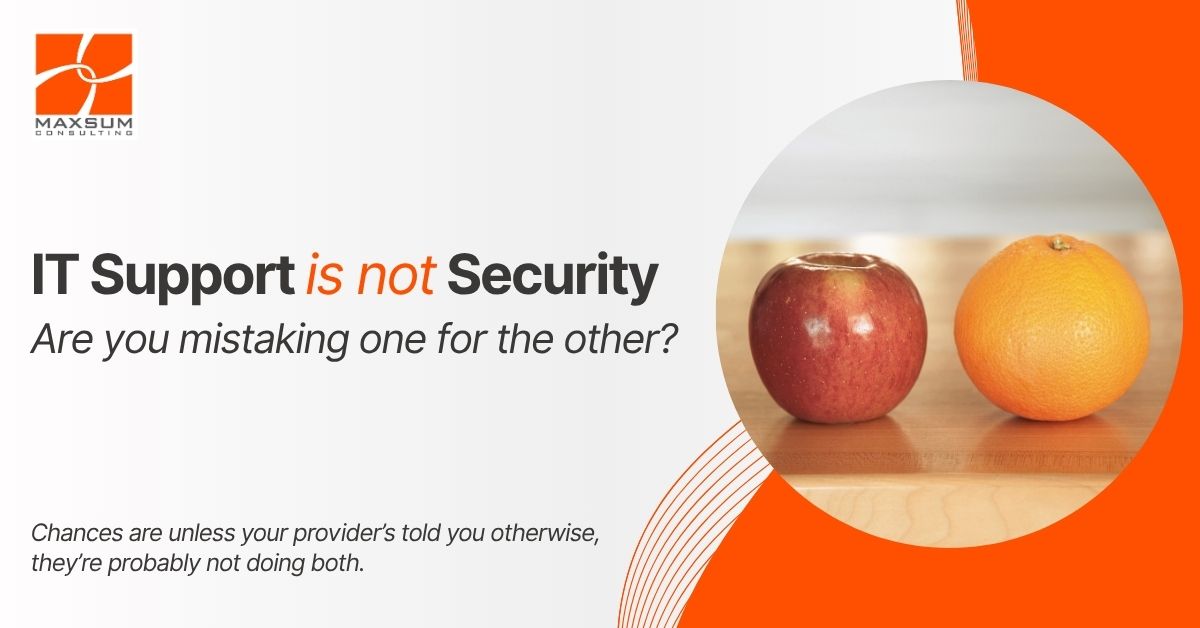Most cyber breaches don’t happen in chaos. They happen quietly, while everything appears to be working fine…
The systems run, the tickets get answered, and you assume you’re covered. But most MSPs aren’t watching for live threats, their focus is on keeping the lights on.
It’s an easy assumption to make: the team managing your systems must also be protecting them. But they’re two different roles.
Unless your provider’s told you otherwise, they’re probably not doing both.
Are you covered, or just comfortable?
Support keeps things running. Security watches for threats. They’re not the same function, and if you’re unsure where that line is, you might already be exposed.
- You’ve never mapped out how a breach would be handled, or by who
Which means in a crisis, confusion – not control – will take over. - Your IT reports are operational, not risk-based
So you’re measuring performance, but not protection. - No one’s clearly accountable for live threat response
When something goes wrong, fingers point, instead of action being taken. - You trust that someone’s watching, but you’ve never seen proof
Assumptions are cheap. Breaches are not.
If that sounds familiar, you’re not alone. Most execs we meet are surprised by how much they assumed was covered until we unpack the risks.
Tales from the Front Lines: The Tuesday Breach
The business signed off on a final project invoice – $730,000 from a long-standing supplier. The work was done and the invoice was expected. Nothing seemed off.
Until the supplier called two weeks later asking why payment hadn’t arrived.
The account details had been changed. The email was legitimate. The invoice also legitimate and matched expectations. But it was fraud and the funds were gone.
They alerted their incumbent MSP at the time. Their response? “This sort of investigation in outside our service scope – we will look at what we can and see what we can do.”
There was no breach nor malware. Just a well-executed social engineering attack that no one was watching for.
Just to be clear, the MSP wasn’t at fault. In this case, the problem was that no one one had been responsible for proactively managing cyber risk. And so no one flagged that something was amiss… until it was too late.
This isn’t about changing your MSP…It’s about understanding that IT Support isn’t Security
Most MSPs do a good job, at what they’re set up to do.
But proactive cyber threat hunting usually isn’t part of the brief. And very few providers make it clear where their cyber responsibility ends.
We work with companies that already outsource IT. Not to replace anyone, but to bring clarity around risk, accountability, and the gaps that don’t show up in a ticketing system or service reports.
If you’re not clear on where your provider’s cyber responsibility ends, or who’s accountable when something goes wrong, let’s have that conversation. Just a straight-up look at where your risk actually sits and what can be proactively done to minimise your exposure.
Reach out to start the IT Security Conversation today.



